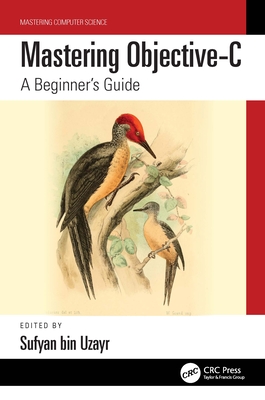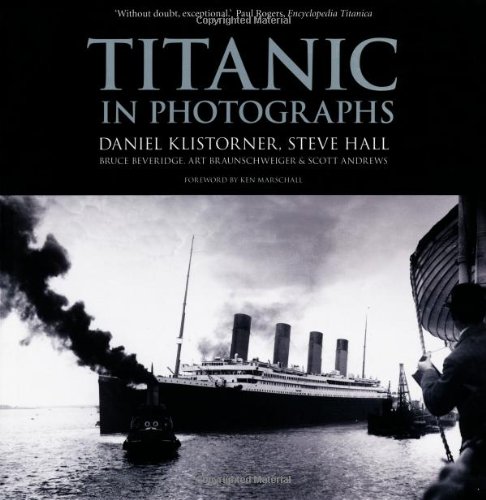图书简介
This handbook is an essential, comprehensive resource for students and academics interested in topics in cognitive psychology, including perceptual issues, attention, memory, knowledge representation, language, emotional influences, judgment, problem solving, and the study of individual differences in cognition.
馆藏图书馆
Harvard Library
1. Introduction to the Handbook; Daniel Reisberg; Part One: Gaining Information about the Visual World; 2. Perceptual Organization in Vision; Mary A. Peterson and Ruth Kimchi; 3. Object Recognition; John E. Hummel; 4. Face Recognition; Gillian Rhodes; 5. Eye Movements; John M. Henderson; 6. Event Perception; Barbara Tversky and Jeffrey M. Zacks; Part Two: Attention and Awareness; 7. Perception and Attention; Ronald A. Rensink; 8. Spatial Attention; Kyle R. Cave; 9. Disorders of Attention; Robert H Logie; 10. The Nature and Status of Visual Resources; Steven L. Franconeri; 11. Automaticity; Agnes Moors; 12. Unconscious Processes; John F. Kihlstrom; Part Three: Memory; 13. Episodic Memory; David A. Gallo and Mark E. Wheeler; 14. Semantic Memory; Ken McRae and Michael Jones; 15. Implicit Memory; Neil W. Mulligan and Miri Besken; 16. The Sources of Memory Errors; Cara Laney; 17. Through the SCAPE Looking-Glass: Sources of Performance and Sources of Attribution; Jason P. Leboe and Bruce W. A. Whittlesea; 18. Event-Based Prospective Remembering: An Integration of Prospective Memory and Cognitive Control Theories; Julie M. Bugg, Mark A. McDaniel, and Gilles O. Einstein; 19. Metamemory; John Dunlosky and Keith W. Thiede; 20. Memory in Educational Settings; Elizabeth J. Marsh and Andrew C. Butler; Part Four: Knowledge and mental representation; 21. The Nature of Mental Concepts; Arthur B. Markman and Jonathan R. Rein; 22. Culture, Expertise, and Mental Categories; Kathy E. Johnson; 23. Models of Categorization; Andy J. Wills; 24. The Perceptual Representation of Mental Categories; Diane Pecher; 25. Mental Images; Daniel Reisberg; Part Five: Text and Language; 26. Speech Perception; Sven L. Mattys; 27. Spoken Word Perception; James S. Magnuson, Daniel Mirman, and Emily Myers; 28. Basic Processes in Reading; Keith Rayner and Alexander Pollatsek; 29. Text Comprehension; Morton Ann Gernsbacher and Michael P. Kaschak; 30. Discourse Comprehension; Arthur C. Graesser and Carol Forsyth; 31. Early Word Learning; Melissa Koenig and Caitlin Cole; 32. Relations between Language and Thought; Lila Gleitman and Anna Papafragou; 33. The Evolution of Language; Derek Bickerton; Part Six: The Role for Emotion; 34. Emotion Perception: Putting the Face in Context; Maria Gendron, Batja Mesquita, and Lisa Feldman Barrett; 35. Emotion, Stress, and Memory; Siobhan M. Hoscheidt, Bhaktee Dongaonkar, Jessica Payne, and Lynn Nade; 36. Emotion-Cognition Interaction; Jeffrey R. Huntsinger and Simone Schnall; 37. An Emotion Regulation Perspective on Belief Change; Matthew Tyler Boden and James J. Gross; Part Seven: Judgment, Reasoning, and Choice; 38. Judgment under Uncertainty; Ben R. Newell; 39. Induction; Brett K. Hayes and Evan Heit; 40. Reasoning; Jonathan St T Evans; 41. The Mental Models Perspective; Philip N. Johnson-Laird; 42. Analogical Learning and Reasoning; Dedre Gentner and Linsey A. Smith; 43. Decision Making; Maarten Speekenbrink and David R. Shanks; 44. Affective Forecasting and Well Being; Barry Schwartz and Roseanna Sommers; Part Eight: Thinking in Specialized Domains; 45. Spatial Reasoning; Holger Schultheis and Laura A. Carlson; 46. Causal Reasoning; Michael R. Waldmann and York Hagmayer; 47. Moral Thinking; Liane L. Young; Part Nine: Problem Solving and Creativity; 48. Problem Solving; Richard E. Mayer; 49. Insight; Jessica I. Fleck, Mark Beeman, and John Kounios; 50. Creativity; Dean Keith Simonton and Rodica Ioana Damian; Part X: How Do We Differ?; 51. Contemporary Theories of Intelligence; James C. Kaufman, Scott Barry Kaufman, and Jonathan A. Plucker; 52. Genes and Intelligence; Thais S. Rizzi and Danielle Posthuma; 53. Cognitive Style; Maria Kozhevnikov; Part Eleven: Practice and Skilled Performance; 54. Planning and Performing Physical Actions; David A. Rosenbaum; 55. The Psychology of Practice: Lessons from Spatial Cognition; David H. Uttal and Nathaniel G. Meadow; 56. Experts and Their Superior Performance; K. Anders Ericsson and Tyler J. Towne; Part Twelve: The Social and Cultural Context; 57. Self-Knowledge; Isabelle M. Bauer and Roy F. Baumeister; 58. Person Perception; Gordon B. Moskowitz and Michael J. Gill; 59. Theory of Mind; Dana Samson; 60. Attitude Change; Galen V. Bodenhausen and Bertram Gawronski; 61. Cultural Differences; Yuri Miyamoto and Brooke Wilken; Part Thirteen: A Developmental Perspective; 62. The Development of Cognitive Control from Infancy through Childhood; Katherine C. Morasch, Vinaya Raj, and Martha Ann Bell; 63. The Development of Attention; Greg D. Reynolds, Mary L. Courage, and John E. Richards; 64. Cognitive Aging; Paul Verhaeghen; 65. Epilogue: Looking Forward; Daniel J. Reisberg
Trade Policy 买家须知
- 关于产品:
- ● 正版保障:本网站隶属于中国国际图书贸易集团公司,确保所有图书都是100%正版。
- ● 环保纸张:进口图书大多使用的都是环保轻型张,颜色偏黄,重量比较轻。
- ● 毛边版:即书翻页的地方,故意做成了参差不齐的样子,一般为精装版,更具收藏价值。
关于退换货:- 由于预订产品的特殊性,采购订单正式发订后,买方不得无故取消全部或部分产品的订购。
- 由于进口图书的特殊性,发生以下情况的,请直接拒收货物,由快递返回:
- ● 外包装破损/发错货/少发货/图书外观破损/图书配件不全(例如:光盘等)
并请在工作日通过电话400-008-1110联系我们。
- 签收后,如发生以下情况,请在签收后的5个工作日内联系客服办理退换货:
- ● 缺页/错页/错印/脱线
关于发货时间:- 一般情况下:
- ●【现货】 下单后48小时内由北京(库房)发出快递。
- ●【预订】【预售】下单后国外发货,到货时间预计5-8周左右,店铺默认中通快递,如需顺丰快递邮费到付。
- ● 需要开具发票的客户,发货时间可能在上述基础上再延后1-2个工作日(紧急发票需求,请联系010-68433105/3213);
- ● 如遇其他特殊原因,对发货时间有影响的,我们会第一时间在网站公告,敬请留意。
关于到货时间:- 由于进口图书入境入库后,都是委托第三方快递发货,所以我们只能保证在规定时间内发出,但无法为您保证确切的到货时间。
- ● 主要城市一般2-4天
- ● 偏远地区一般4-7天
关于接听咨询电话的时间:- 010-68433105/3213正常接听咨询电话的时间为:周一至周五上午8:30~下午5:00,周六、日及法定节假日休息,将无法接听来电,敬请谅解。
- 其它时间您也可以通过邮件联系我们:customer@readgo.cn,工作日会优先处理。
关于快递:- ● 已付款订单:主要由中通、宅急送负责派送,订单进度查询请拨打010-68433105/3213。
本书暂无推荐
本书暂无推荐













